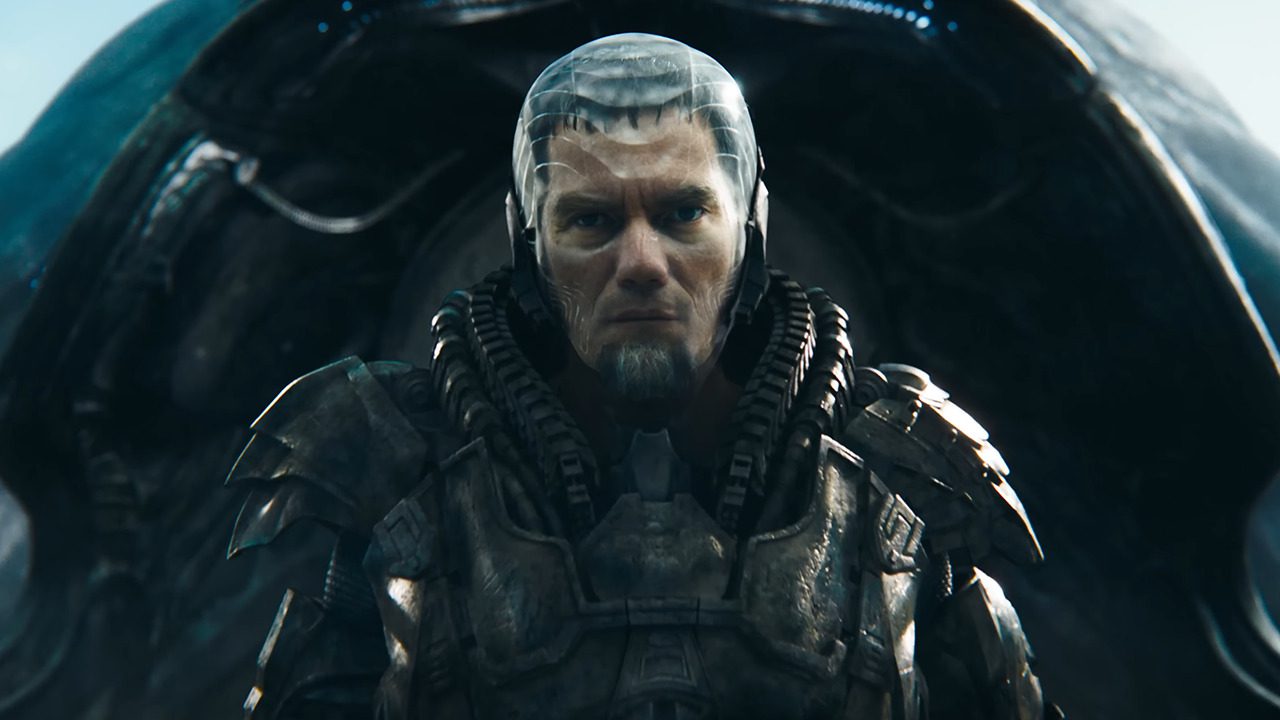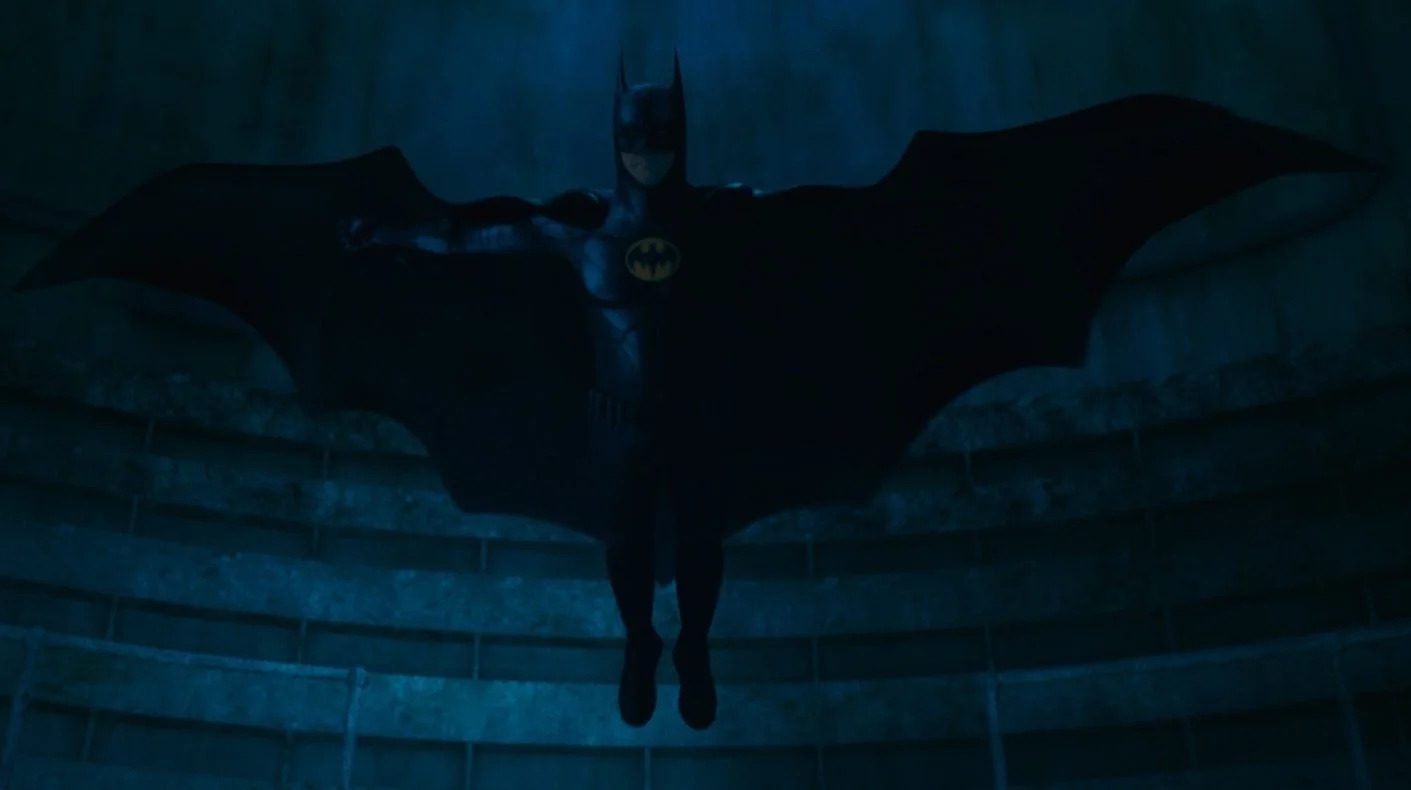How The Flash Could Have Been Better
The Flash has been out for over a week now, and since it dropped 73% from its opening weekend, it’s safe to say the movie is not resonating. I didn’t like it – although I loved parts of it – and think it collapses under its own weight. But did it have to be this way? Was the structure of The Flash salvageable with some changes to the story? I think so; there’s a good movie buried under this disaster, and I think I’ve found the road map to it. So, here are a few ways The Flash could have been a much better movie.
I’m not including some obvious things, like recasting Barry Allen (preferably with Grant Gustin if he were amenable, but really, almost anyone would have been better) or making the special effects look good. Aside from the fact that those are obvious, there isn’t much to say about them. But for the record, yes, do those things.
The following will have massive spoilers for The Flash, as well as its comic book inspiration, “Flashpoint” (and, by extension, the excellent animated adaptation Justice League: The Flashpoint Paradox). If you want a comprehensive rundown of “Flashpoint,” you can read Jed’s right here.
*SPOILERS*
Tone Down the Comedy

Like Marvel’s recent movies, The Flash goes way overboard with humor, and it undermines several important things about the film. Take the opening action sequence, for example; this is supposed to be the scene that establishes the Flash as the hero of the movie, a protagonist we can root for and believe in as he rescues people from a collapsing hospital, including a bunch of falling babies. It’s a great setup, but the execution is a train wreck. This scene should be shocking as we watch innocent babies falling to their deaths, exciting as the Flash rushes in to save them, harrowing as it looks like he may not pull it off, and, finally, a triumphant hero moment as we see the Flash rescue the babies and their nurse. But the film turns this vital moment into a series of awful jokes (complemented by CGI that’ll make you want to cut your eyes out), devoid of danger or excitement, and ending on the disturbing image of Ezra Miller making creepy faces at one of the babies while another rests in… a microwave. The scene is now boring and seems much longer than it is, which a two-and-a-half-hour movie really doesn’t need.
This also impacts the ending, where Barry realizes he must allow his mother to die to prevent the apocalyptic future his rescue created. There are a series of tragedies involved in this: Batman and Supergirl die twice; Barry realizes he must let his mother die; the other Barry is revealed as the mysterious speedster who’s been menacing the main Barry in the Speed Force, trapped in an endless cycle of time travel because he refuses to let go; the younger version of that Barry sacrifices himself to erase his future persona; and, finally, Barry undoes his rescue of his mother, tearfully hugging her one last time. Theoretically, this is a strong, impactful, sad, thought-provoking moment of self-sacrifice, an unusual and original (outside of the fact that a comic book, TV show, and animated film have already done it) way to end a superhero movie. But it feels wrong and unsatisfying, and that’s largely because the movie has been bogged down by so much dopey comedy. This ending works so well in “Flashpoint” because the story leading to it is dark and has a serious tone; you can’t give an audience a lighthearted romp for two hours before suddenly sticking a knife in their hearts and expect them to accept it.
It would also help if the minimal jokes were actually funny.
Make Barry Allen More Relatable

This somewhat ties into the previous point because humor is a big part of it. Ezra Miller’s Barry Allen is so annoying and off-putting that he stops you from being able to sympathize with him. The constant joking is a problem, partly because he doesn’t feel like a serious character and partly because the jokes are so bad (and Miller is even worse at delivering them) that it becomes a chore to sit through his scenes. This was true of Justice League as well, but he was a smaller part of that movie; in The Flash, he’s in almost every scene, and he’s constantly trying to be funny, doing wacky stuff like running around a room like a moron before realizing he’s lost his powers or making stupid faces while he eats. He’s also awkward to a fault, unable to have a normal conversation with anybody. In my review, I contrasted this to Toby Maguire’s Peter Parker; that performance played up Peter’s awkwardness too, but it was done in a more believable and relatable way so that when Peter finally does have an honest conversation with Mary Jane, it feels like he’s becoming more confident. (And Spider-Man is not what I’d call a subtle movie.) There’s no moment like that with Barry because he’s a caricature of awkwardness more than a character who is awkward. Finally, he’s selfish, demeaning his role in saving people from the hospital as janitorial work and bemoaning that frightened disaster victims don’t take time out of their trauma to thank him. This isn’t a hero; it’s a glory hound.
This becomes a bigger problem when the other Barry is introduced because it keeps The Flash from being able to differentiate between the two versions of its lead character. The idea is that the new Barry, the one created in the new timeline, is a selfish, immature jerk who doesn’t take anything seriously and is so awkward that nobody likes him. At one point, he tells the first Barry that everyone thinks he’s annoying. There’s a good idea here; this new Barry has never lived with the pain of losing someone he loves and seeing another wrongfully imprisoned and has never had to grow up knowing that evil and injustice exist in the world. He never had the spark that caused him to want to help others, nor did he have the calling to become a forensics scientist, which led to him getting his superpowers. The Flash created a world without the Flash, and this Barry should embody that. The problem is that he doesn’t feel much different from the first Barry; he’s the same annoying, awkward, selfish guy, just amped up to a seemingly impossible degree. He’s annoying as holy hell, but even still, he’s not a whole lot more annoying than the first Barry, so the effect is lost, and the movie is even more excruciating.
Have a Villain

The trailers for The Flash teased General Zod as the villain, but that’s not accurate. He’s in the movie for maybe fifteen minutes at the end, and he’s a nemesis for Supergirl much more than he is for the Flash. The only character you can kind of call the villain is Barry himself, who screwed up the timeline, created the multiverse (or revealed it, or fractured it, or whatever the spaghetti metaphor was supposed to mean), and created a new version of himself who becomes so obsessed with changing the past that he spends an eternity doing it over and over again, to no effect. But Barry – both versions of him – is more a tragic figure than a villain, not realizing what he was doing while trying to save his mother’s life and, later, avoiding the reality that he has to let her die; he’s also in the movie even less than Zod is, at least in his darker guise. As a result, there’s nothing to fight, no real enemy personifying Barry’s struggle against his own baser impulses. I’d thought Zod would fit that bill, a man who refused to accept his race’s demise and was ready to destroy another so that his may survive. But, again, Zod is not in the movie for long, and there’s no time to draw a parallel between him and Barry, with whom he never even interacts.
“Flashpoint” had a villain in the Reverse-Flash, Barry’s archenemy who had been pulling the strings from the beginning, manipulating Barry into destroying the world he’d sworn to protect. It was the Reverse-Flash who killed Barry’s mother, going back in time to create the circumstances under which the Flash would be born. In undoing that, Barry erased his own superhero origin, and he changed those of Superman and Batman and turned Wonder Woman and Aquaman into warring despots destroying humanity with their conflict. It was perfectly done, giving Barry an enemy to fight and giving the reader a face to put on the torment Barry was going through as he struggled with his own happiness and the horror show it created. But the movie doesn’t have that, so the ending is just a series of downers, from the inevitability of Zod’s triumph to Other Barry’s death to Barry allowing his mother to die. Part of this is because of the haphazard way the DCEU was structured; the Flash had no solo movie before this, so there was no opportunity to establish the Reverse-Flash as his nemesis, making a potential appearance here feel random and unceremonious. But they needed someone – besides Barry – to be the bad guy.
More Batman and Supergirl

Michael Keaton’s Batman is the best part of The Flash, and it’s not even close. He steps back into the role like he never left it, remembering every facet of the Batman he and Tim Burton created. His initial appearance, as a recluse spending his days skulking around Wayne Manor, works because it gives us a Batman who’d been triumphant; he won his war on crime, and Gotham City is now safe, no longer needing a Batman because it thrives in his shadow. But Batman is still in him, and though he declines Barry’s plea for help at first, the pictures of his parents stir memories of why he’d started his caped crusade. The memories of his parents light the spark in him again, and he shows up as Batman, the Danny Elfman theme blaring in majestic force. His delivery of “I’m Batman” is great because it’s not just for Barry’s benefit; he’s reminding himself, too. And when he jumps into action, he’s Batman again, so badass that both versions of the Flash learn quickly to stay out of his way. But the most perfect moment of the film is when Bruce is stitching up a wound on his arm, and he looks at himself in the mirror… and grins. This is invoking his introduction in Batman Returns, when he comes to life as the Bat-Signal shines on him; once more, Bruce Wayne is alive because, once more, he’s Batman.
Supergirl also has a good arc, albeit one shown in broad strokes. Unlike Batman, she has no history as a superhero. Since arriving on Earth, Supergirl has been locked in a secret Russian prison and experimented on by the Russian military, chained up and kept away from the sunlight that would have given her the powers of a god. (Why they left her suit in the room with her requires an explanation from the Pitch Meeting screenwriter.) When Barry and Batman rescue her, she’s an emaciated husk of a girl, unable to even walk on her own, let alone leap tall buildings or bend steel with her bare hands. Her eventual exposure to the sun allows her to reach her potential, and she easily dispatches the Russians who held her captive with a fraction of her full strength. But she’s also jaded, and when Barry asks her to help him stop Zod, she’s not interested. Why should she defy her own race to save the people who imprisoned and tortured her? But observing Zod in action teaches her that not all Kryptonians are good, and remembering that Barry saved her when he didn’t have to makes her realize that not all humans are bad, and she decides to help, becoming the hero she refused to be but that her new home needs.
As great as these two subplots are, The Flash would have benefited from giving them more screen time. Supergirl’s arc doesn’t have enough time to breathe. Seeing her come to her realization more gradually would have made her eventual turn to good more satisfying; it also would have allowed the movie to tie her arc into Barry’s story, with her learning to put others before herself and her “family,” as Barry eventually learns he must do. With her limited presence in the film, Supergirl feels like a plot device, despite the good intentions with her arc and Sasha Calle’s strong performance. Batman’s arc fares better because he’s around more than Supergirl is, but the movie desperately needs someone other than Ezra Miller as the focus in its first half. That’s an excruciating hour, and Miller is not a good enough actor to carry it himself, especially when he’s trying (and failing miserably) to be funny and likable. Some of this time could have been used to show Bruce Wayne adapting to his return as Batman; maybe as Barry and Supergirl get some rest or prepare for battle, Batman stalks the rooftops of Gotham searching for a criminal to pound into dust (or somewhere else because Gotham has no crime anymore). And like Supergirl, he could have tied into Barry’s arc better, perhaps by realizing that the tragedy that created him was necessary for the world in the same way Barry does. And, returning to an earlier point, if there were a real villain, the climax could have Batman and Supergirl helping the Flash fight him, realizing that the true battle is with him, not with Zod, which would also make Zod’s limited presence more palatable.
And they also should have gone with one of the earlier endings featuring these two. The story behind how that George Clooney nonsense happened has really soured me on James Gunn and Peter Safran running DC Studios.
***
If everyone involved had put some more thought and care into this movie, The Flash could have been great. It stems from excellent source material, and there are rich ideas and themes at its heart. But despite this film being almost a decade in the making, it feels like an afterthought, like it was thrown together by people who just wanted to get anything out in theaters as quickly as possible. It should have been an epic story of heroes rising, falling, and rising again, the limits of power, the honor found in sacrifice, the heroism that comes from realizing the humanity in others, and the fact that Batman is awesome. Instead, it’s another misfire in the disaster that was the DCEU. But it’s being nullified soon, so I guess we shouldn’t worry about it too much.







